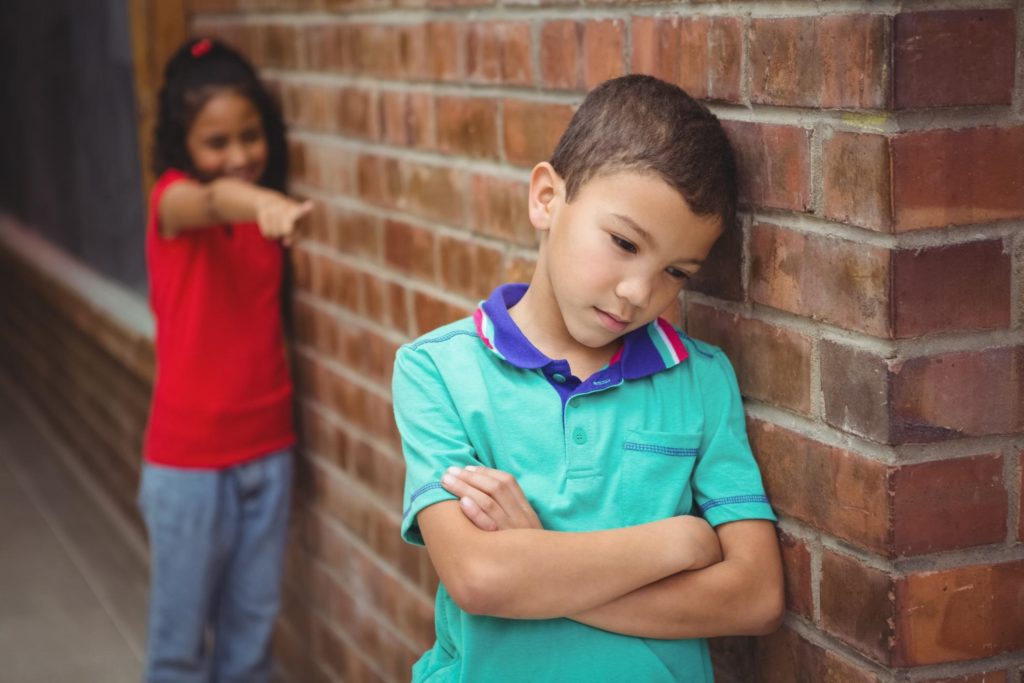What to do when your child has no friends at school!
It breaks every mom or dad’s heart to see their child at school walking around aimlessly without a friend to play with, silently hoping another child would say “Do you want to play”. While you can’t jump on the playground and force other children to play with your child, how can you help them build social skills and emotional skills to approach potential friends and hold on friendships.
All human beings have a need to bond with others. For some it comes naturally and for others there are stumbling blocks that make the process challenging. Children can start forming friendships as early as preschool- as they get attached to other children they have things in common with. When that is the case, these social concerns become a non- issue. However, when day after day you ask your child “how was your day at school” and their response is “Nobody played with me…. nobody likes me! – These e may be early signs that your child may need help developing social skills as well as emotional skills. .
There are definite Do’s and Don’ts when it comes to how to address these issues.
- Be subtle in your judgement of this experience your child is going through. Children don’t judge the way adults do. As this point they simply feel bad but nothing more. When we make this experience out to be more than it is, we may start to affect the child’s self esteem and self confidence, DO NOT blow it out of proportion and bring a type of judgment that not having friends is the worst thing in the world. Simply embrace this as information- that your child is challenged in this area and may need some tools to overcome it.
- Do NOT talk about it negatively in your child’s presence. Be sure as you discuss this with your spouse, friends or other family members, you don’t shed a negative light on the fact that this is happening.
Instead…………………………….
- DO be attentive and catch moments when your child may be acting in an unproductive manner, correct it and make it a learning experience. For instance, if your grabs something from you or another family member, you can say to them- “One of the ways to be a good friend is to not grab things” Then proceed to tell them what they should do instead. Many parents will tell their children what not to do, but don’t offer an alternative. It is very important to give your child another option to bad behavior.
- DO Register your child is social skills and emotional skills programs. While parents spend a tremendous amount of money on tutoring programs for math, science and other academic subjects, they don’t invest nearly as much in social skill building and emotional skills training. While society does not deem EQ (emotional intelligence) as important or significant as IQ, I emotional intelligence has been proven to be a greater predictor of adult success. In addition, children who have high levels of social/emotional skills do better academically in school, are healthier, and happier overall. Thus, it is crucial that once parents see the beginnings of distress or difficulty in emotional and social skills, they nip in the bud and get their child help as soon as possible
- DO join play groups with your child. Play groups are an opportunity to give your child an environment to practice those skills while you supervise, direct and correct their behavior immediately. It also gives the child a platform to safely take risks within your presence.
- DO model good social skills in front of your children. Let your child see how you approach and relate to people at the supermarket, while you drive, at home, at the park etc. Children are like sponges and soak in everything they see their parents doing. It would be quite ironic for a child to grow up in a toxic home full of aggression, selfishness and insensitivity and expect that child to go into the world and not act the same way.
In conclusion, do no panic if those early years are shaky. Children have many opportunities to learn and gain new skills – if parents are conscious and direct them in the right path. A conscious parent pays attention to everything but keeps things in perspective. All we see, hear and experience as parents in these early years are information that we can act upon, not panic and over react!
To find out more about Positive Kids Social skills and Emotional Skills Training Program, please contact us @ 1-866-503-7454 or email us info@positivekids.ca

